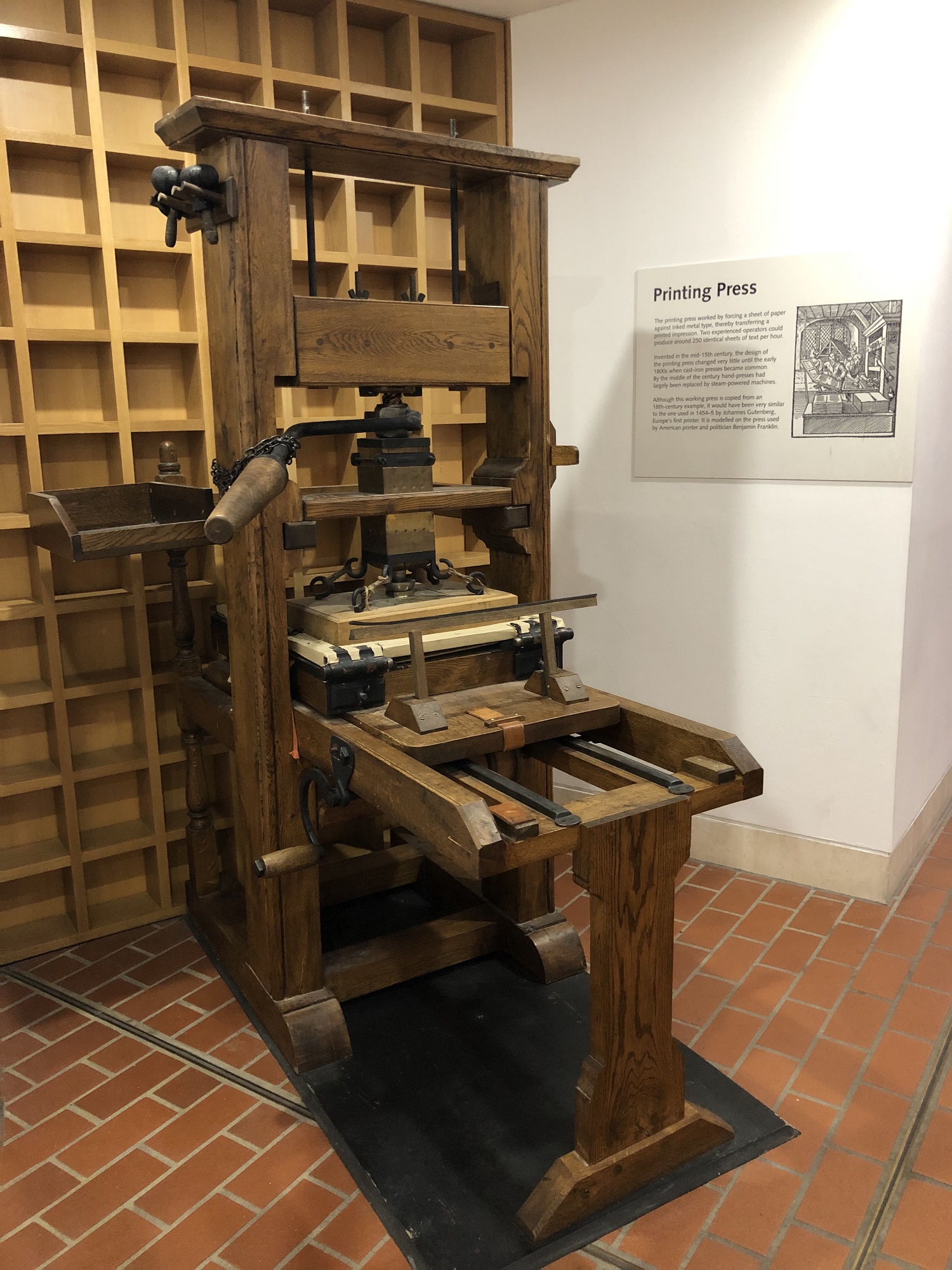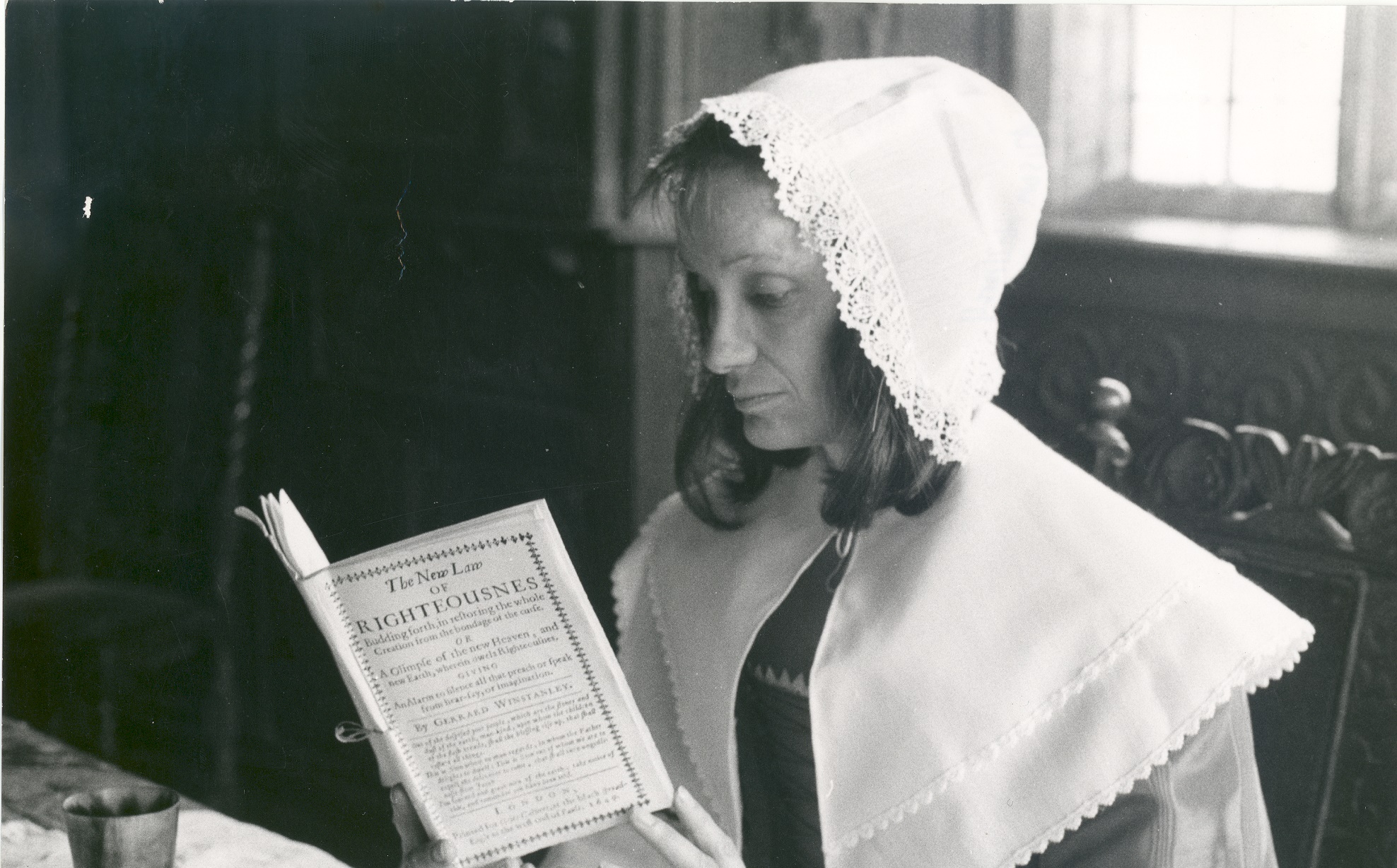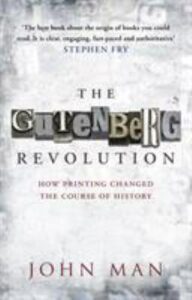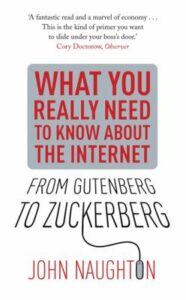Explore the latest news and find out what's on this month
Explore our learning offer for schools, families and community groups
Uncover the rich history of Elmbridge with our latest online exhibitions
Want to discover more about your local area?
Explore the latest news and find out what's on this month
Explore our learning offer for schools, families and community groups
Uncover the rich history of Elmbridge with our latest online exhibitions
Want to discover more about your local area?
Nowadays, much is being discussed about the impacts of social media, and how it has changed social relations and the way we interact with the world. Questions have also been raised about how new ways of communicating and sharing information have the potential to influence our opinions, and how this affects world events such as national elections.
Recent investigations demonstrate a close link between the rise of the phenomena of fake news through social media, and the election of populist, far right politicians all over the globe, as happened in the United States of America in 2016 (Lee, 2020), and in Brazil in 2018 (Avelar, 2019), for example. And the same effect is being felt now during the pandemic, with conspiracy theories about the vaccines and the origins of Coronavirus unfortunately finding fertile ground to spread and develop on social media.
Have you ever stopped to think how social media affects your life? How do you share your views online? And what part is played by social media when it comes to shaping your opinions and gathering information about what is happening around you?
A sheet printed only on one side, which made it very cheap, with themes that could vary – from ballads, to political and religious topics.
The term ‘chapbook’ is often employed to refer to a variety of popular early modern street literature. Chapbooks were usually bound with stitches and were small and relatively affordable.
A common motif in 16th and 17th century political and religious debates, encompassing discussions about liberty, property and community, drawing back to the Anabaptists in the German Peasant’s Revolt in the 16th century. The community of goods theory entailed, amongst other things, the abolition of private ownership of property.
Refers to oral culture, the habits of passing on information, stories and so on through speech rather than writing, which created a unique way in which people related to it.
Usually printed in quarto or octavo format – where a printed page is folded four or eight times in order to form the sheets of the pamphlet. These were relatively cheap and could cover a variety of subjects. Due to their format and price, pamphlets can be considered a type of print with a greater range of accessibility.
A political stance that builds itself on the idea of antagonism, promoting an idea of ‘us’ versus ‘them’. Populism often creates the idea of an ‘enemy’, either real or fictitious.
Religious doctrines and/or opinions that diverge from the one being promoted by the official State Church (in 17th century England’s case, Anglicanism).
Similar to treason, inciting resistance to or rebellion against the established authority, such as the king.
Term that describes the various conflicts that engulfed Ireland, Scotland and England between 1638 and 1660. It encompassed wars such as the English Civil Wars, the Bishops Wars and the Irish Confederate Wars.
 Replica of an 18th century Printing Press, located on the Lower Ground Floor of the British Library, London. Photo taken by the author.
Replica of an 18th century Printing Press, located on the Lower Ground Floor of the British Library, London. Photo taken by the author.
In England during the 17th century, something slightly similar to what we are living today was happening. Only, the invention that was changing society wasn’t the internet, but the printing press. Also known as ‘Gutenberg’s Press’, it was invented by Johannes Gutenberg in the 15th century in the Holy Roman Empire (present day Germany). This was a machine that mechanised print, using movable types (made either with metal or wood) ‘by which text and images are transferred to paper or other media by means of ink’ (Britannica, 2019). What made this invention so revolutionary is that it made it incredibly easy to reproduce written texts, consequently making them considerably cheaper.
Before this invention, everything was copied by hand, meaning books and other written works were luxury items. With the advent of the press, Europe experienced a surge of new types of written materials other than books, such as pamphlets, broadsides and chapbooks. There were what we call ‘ephemeral literature’, or yet ‘street literature’, emphasizing that they were not written works made ‘to last’ through time; rather, their goal was to engage with current events, to be easily and quickly consumed by readers. This was possible due to some characteristics of this type of literature, such as being printed on cheaper paper, using fewer sheets, being folded many times (in the case of pamphlets) to create each page, usually making them rather small. Hence, their price was considerably lower, and they were easy to carry and exchange, being much more accessible than an expensive, heavy leather cover book.
The Protestant Reformation in England also had a considerable impact on advancing literacy. This was mainly because of the protestant doctrine that defended the translation of the Bible to common languages, as opposed to only Latin and Greek as had been the norm, so that more ordinary people could have access to the ‘direct word of God’. This worked as an incentive for relatively more people to learn how to read.
But we should bear in mind that literacy levels in general were still quite low and varied greatly depending on matters such as gender and social group. Attention is also needed regarding what we deem as ‘literate’, as some people could read, but nevertheless could not write. David Cressy, a historian that has developed a series of investigations into this topic, suggests that around 30% of adult men, and 10% of adult women, could read and write (Cressy, 1977).
When it comes to this sort of ephemeral literature, we also must keep in mind the oral dimension of reading culture in 17th century England: many of these prints were read aloud, amongst a group of people, and were also sold on the streets with their titles being read out in order to advertise them and draw the attention of passing crowds. So even if few people could read these prints for themselves, they could still get in touch with the ideas being disclosed through orality.

Woman reading one of Winstanley’s pamphlets in the 1975 film ‘Winstanley’
Access to print was, therefore, on the rise, but there was still the matter of censorship. One could not simply go on to publish whatever he or she wished – it had to be approved by the state’s censors first.
But then war hit, and the chaos caused by the conflicts that started in 1640 meant that all of the infrastructure of the state was heavily focused on the war effort. This consequently caused the destabilisation of some aspects of government and control, and such was also the case for censorship. Prior to the war, government had a tight grasp on what was allowed to be published, in order to undermine potential seditious and religious heterodox content. But now with king and parliament entangled in war, controlling what was being published was not amongst the priorities of this unstable state.
It is, however, important to bear in mind that people were still very much aware of the potential consequences for publishing something that could be deemed seditious or scandalous. Consequently, when a certain topic was considered ‘dangerous’ in some way for those involved in its publication, sometimes authors, printers and booksellers resorted to anonymity as a strategy to protect themselves against backlash and persecution.
So, literacy was increasing, print was getting cheaper, and now censorship was being considerably eased: thus ideas, stories and all kinds of information that were circulating in writing were slowly becoming more and more accessible to a wider public.
All this combined culminated in an ‘explosion of print’ in England, as yet another cultural effect of the civil wars: until 1639, the annual press output was roughly over 500 items per year at its highest, but in 1642 it hit the impressive figure of over 4000 items per year, and figures never went back to being as low as they were before the war started, not even after the restoration of monarchy in 1660 (Raymond 2003, p. 164).
Another sign of the changing times was the creation of the first British newsbooks concerning domestic affairs. Up until then, people’s urges for news in Britain were satisfied only by corantos, which were periodical ‘newssheets, originally imported from Holland, which provided readers with foreign news, essentially news of the Thirty Years War that tore Europe asunder between 1618 and 1648’ (Curelly, 2017, p. 2). Even when such corantos started to be printed in England in 1621 (Curelly, 2017, p. 2), it was forbidden to publish news concerning domestic affairs, something that would only change with the first newsbooks during the Wars of the Three Kingdoms. Then, both royalists and parliamentarians started publishing their own newsbooks, as did other groups and individuals. This was quite emblematic of the large appetite for news that characterised this period of tremendous political instability.
![‘A Vindication of those, Whose endeavours is only to make the Earth a common treasury, called Diggers’, Gerrard Winstanley, 1649. Source: Copy of the original in the British Library, Thomason Tracts, C124h1[1]. ‘A Vindication of those, Whose endeavours is only to make the Earth a common treasury, called Diggers’, Gerrard Winstanley, 1649. Source: Copy of the original in the British Library, Thomason Tracts, C124h1[1].](https://elmbridgemuseum.org.uk/wp-content/uploads/2021/04/thumbnail.png) ‘A Vindication of those, Whose endeavours is only to make the Earth a common treasury, called Diggers’, Gerrard Winstanley, 1649. Source: Copy of the original in the British Library, Thomason Tracts, C124h1[1].
‘A Vindication of those, Whose endeavours is only to make the Earth a common treasury, called Diggers’, Gerrard Winstanley, 1649. Source: Copy of the original in the British Library, Thomason Tracts, C124h1[1].
This meant that alongside battles on open fields and institutional political quarrels within Parliament, there were other disputes, of different natures, being fought through print at this time.
What is fascinating about this is that it allowed a larger variety of people to actually share their views and opinions about everything that was going on in England. People who were not necessarily at the top of the social hierarchy, like Gerrard Winstanley himself, were now gifted with a platform where they could share their ideas with a considerably wider public. People were discussing whether the execution of Charles I in 1649 was legal or not; whether Cromwell was a witch; whether monarchy should be abolished and republicanism adopted; whether women should be allowed to preach; whether more people should have the right to vote; whether everyone would be saved when Christ came back, or if only a few elected would enjoy the thousand years of happiness he would bring upon his return; and many, many other subjects.
There were a multitude of voices and topics overflowing in print during the civil wars, in ways never before seen in Britain.
![‘Fire in the Bush’, Gerrard Winstanley, 1650. Source: Copy of the original in the British Library, Thomason Tracts, E.1365[1]. ‘Fire in the Bush’, Gerrard Winstanley, 1650. Source: Copy of the original in the British Library, Thomason Tracts, E.1365[1].](https://elmbridgemuseum.org.uk/wp-content/uploads/2021/04/thumbnail-2.png) ‘Fire in the Bush’, Gerrard Winstanley, 1650. Source: Copy of the original in the British Library, Thomason Tracts, E.1365[1].
‘Fire in the Bush’, Gerrard Winstanley, 1650. Source: Copy of the original in the British Library, Thomason Tracts, E.1365[1].
This changed people’s perceptions on matters of political and religious engagement. For the sake of comparison, think about Twitter: how easy is it to share whatever you want, in 280 characters, with anyone who has access to it? How does having a platform through which you can share your perspectives prompt you to formulate points of view on affairs happening in your daily life? How can it be a tool to try to persuade people to agree with you? Are we more inclined to come up with an opinion on a specific topic when we see that it is trending on Twitter? Do we feel an impulse to give our – more often than not – unrequested opinions just because we know there’s an easy way to share them with many other people? Or do we feel encouraged to share potentially unpopular or polemical opinions when protected by the anonymity provided by the internet?
All of these questions could easily be asked about Winstanley and his contemporaries. The context they were living in empowered them in one way or another to engage in the public sphere and share their views on different topics with the wider public, many times resorting to publishing anonymously (something the Diggers also did) when the content published was deemed of a sensitive nature.
And, much like the fake news phenomena and how it has the power to shape real life events, many of the groups and individuals involved with these conflicts ended up dealing with some kind of ‘seventeenth century fake news’. As aforesaid, Cromwell was accused of having liaisons with witchcraft, and Winstanley and the Diggers were accused of promoting the ‘community of women’ when forwarding their defense of the community of goods, which prompted them to publish two pamphlets massively dedicated to dismissing claims that they practiced excessive drinking and fornication in their communes (Winstanley 1650).
Perceiving all this consequently shows how much mobilising the public’s opinion of you, of your group, and also of your ‘enemies’, was directly related to how far your ideas and proposals might advance. Engaging with a wider audience through print and shaping opinions, perceptions and even emotions, played a large part in seventeenth century politics.
In our next post, we will take a deeper look at how Winstanley and the Diggers engaged with print and public opinion when occupying St. George’s Hill in April 1649. This was the episode that briefly drew the Commonwealth’s attention to the group, and which had more serious repercussions amongst the local communities they were dealing with.

On ‘The many-headed monster: the history of ‘the unruly sort of clowns’ and other early modern peculiarities’ website



Leave a Comment
We'd love to hear your thoughts!You need to be logged in to comment.
Go to login / register